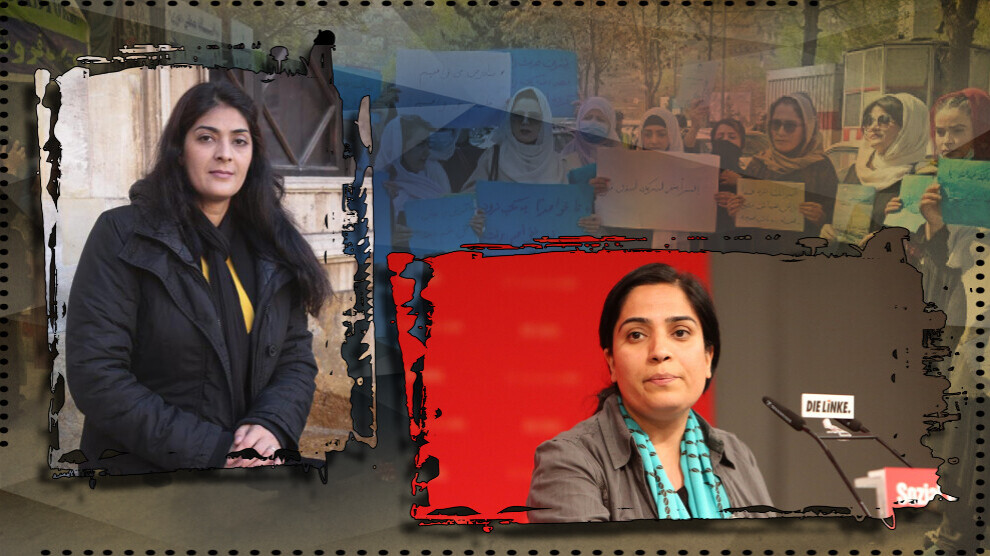History of Afghan women’s role in art and literature-Part 6
“Paying ransom to the savage Taliban is a national betrayal”

BAHARAN LAHIB
Kabul - In the last 20 years under NATO and NATO member countries, Afghan women kept struggling although they were oppressed once again. Since the Taliban took control of the country again in 2021, they have been struggling for their freedom and rights.
On October 7, 2001, the US government and its 45 allies attacked Afghanistan to fight terrorism and protect women's rights. From October 7, 2001 to August 15, 2021, the dictatorial government of the US turned Afghanistan into the most corrupt, insecure, anti-women and miserable country of the world. Their goal was not to build peace, stability or ensure women's rights but ensure their own political, strategic and economic interests.
During these years, clashes and conflicts broke out between Taliban and government forces in every part of Afghanistan. According to the official figures, more than two hundred Afghan soldiers were killed every day at that time. A large number of regions and villages in Afghanistan were in the hands of the Taliban. The rate of poverty, unemployment, suicide attacks, serial killings, femicide, domestic violence, honor killings, rape, stoning to death and hundreds of other crimes in society increased.
Malalai Joya
When the Taliban government collapsed and the new US-backed government formed, a Loya Jirga (grand assembly) was held to arrange and approve the country's new constitution. Most of the members of this Jirga were the leaders and commanders of fundamentalist groups in Afghanistan, individuals who participated in the 1992–1996 Afghan Civil War and committed war crimes. Women also participated in this Loya Jirga, among them was a woman named Malalai Joya, former Member of Parliament for Farah province. She had a remarkable short speech in which she broke the wall of silence and fear before the criminals and called them war criminals and demanded their trial. From that day on, Malalai Joya became a symbol of courage and made great efforts for the anti-fundamentalist and anti-occupation struggle. She was suspended in 2006 for allegedly insulting her fellow MPs.
Belqis Roshan
Belqis Roshan was another delegate of the Loya Jirga. She was an independent member of parliament from Farah province. When the Afghan government led by Karzai invited 2,500 representatives to discuss the signing of the security agreement between Afghanistan and the United States, Belqis Roshan was the only woman who opposed the signing of this agreement. “Who ever signs the agreement is a traitor,” she shouted. Belqis Rosham was the voice of the oppressed people and raised her voice against all kinds of injustice and negativity through the parliament and media.
In 2020, the Ghani government held a Loya Jirga once again in Kabul to discuss the release of 400 Taliban prisoners. Belqis Roshan participated in the Loya Jirga by holding a banner reading, “Paying ransom to the savage Taliban is national betrayal!” Belqis Roshan was dragged out of the venue after she protested the release of Taliban prisoners during President Ghani’s opening speech.
Although Belqis Roshan was an independent Member of Parliament from Farah province, she has a place in the heart of all the people of Afghanistan and the people always respect her because she is a heroic, brave and fearless woman.
Selay Ghaffar
Selay Ghaffar, a spokesperson of Solidarity Party of Afghanistan till August 2021, is known for being outspoken against US-NATO occupation and warlords. Being a political and women's rights activist, she serves to work for many national and international human rights organizations. She was the director of Humanitarian Assistance for the Women and Children of Afghanistan (HAWCA) founded in 1999 in Pakistan. During the era of Taliban, she was part of the group establishing literacy and science courses for girls and women in provinces such as Nangarhar, Laghman, Farah and Herat.
Although the Taliban took control of the country in 2021, Afghan women still struggle for their rights and freedom by holding demonstrations and protests in the country. The history of Afghan women is filled with struggles. They will never give up on their freedom and rights to the end.
